W6 L1 - More Transactions
1/18
There's no tags or description
Looks like no tags are added yet.
Name | Mastery | Learn | Test | Matching | Spaced | Call with Kai |
|---|
No analytics yet
Send a link to your students to track their progress
19 Terms
Avoiding conflicts - ACID
Atomicity
Consistency
Isolation
Durability
Atomicity of Transactions
Property guaranteed by DBMS
Each transaction executes all its actions in one step
Transaction might commit after completing all actions, or abort after executing some actions
Consistency
Property that every transaction sees a consistent database instance
Isolation
Guarantee that the net effect is identical to executuing the transaction serially
Eg: If T1 and T2 executed concurrently, net effect is equivalent to executing
T1 then T2 or
T2 then T1
Durability
DBMS uses log to ensure durability
If system crashes before changes made by a transaction are written to disk, log used to remember and restore these changes
Equivalent Schedules
Different schedules which end up with the same result
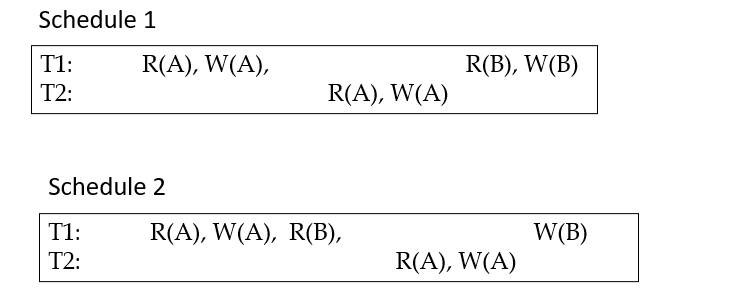
Serialisable Schedule
When a schedule is equivalent to some serial execution of the transactions
Conflict types
Reading Uncommited Data (WR Conflict)
Unrepeatable Reads (RW Conflict)
Overwriting Uncommited Data (WW Conflict)
Commit and Abort
Commit - Makes prior RWs permanent
Abort - Undoes everything in a transaction not yet commited
Lock-Based Concurrency Control
Each transaction must
Obtain S (shared) lock on object before reading
Obtain X (exclusive) lock on object before writing
S or X lock released when corresponding object no longer needed
Eg: T1: S(A), R(A), Release_S(A), X(B), W(B), Release_X(B)
X and S locks
X conflicts with X and S
No transaction can obtain X lock on object if other transaction has X or S lock on that object
S conflicts with X
No transaction can obtain S lock on object if other transaction has X lock on that object
Multiple transactions may obtain an S lock on the same object
Conflict Equivalent Schedules
Two schedules are conflict equivalent if
They involve the same actions of the same transactions
Every pair of conflicting actions are ordered in the same way
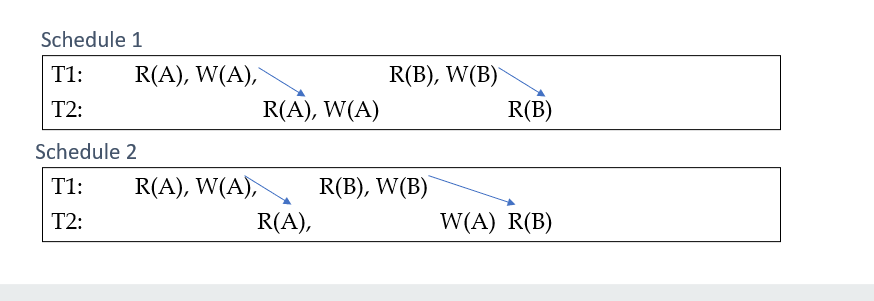
Conflict Serialisable Schedules
A schedule is Conflict Serialisable if it equivalent to some serial schedule
Must maintain order or writes
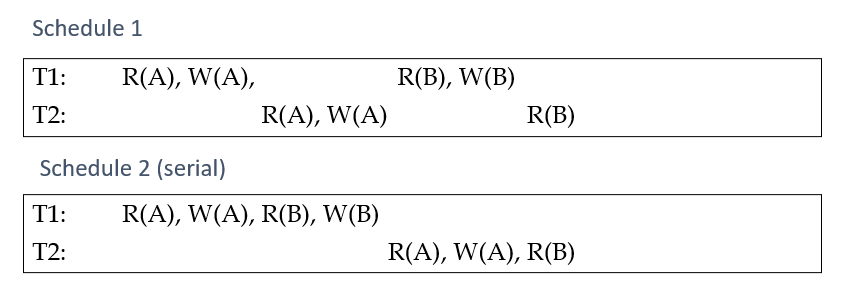
How to check conflict serialisability - Precedence graphs
Nodes - Transactions
Edges - Draw an edge wherever there is a conflict between transactions
If there is a cycle in the precedence graph, the schedule is not conflict serialisable
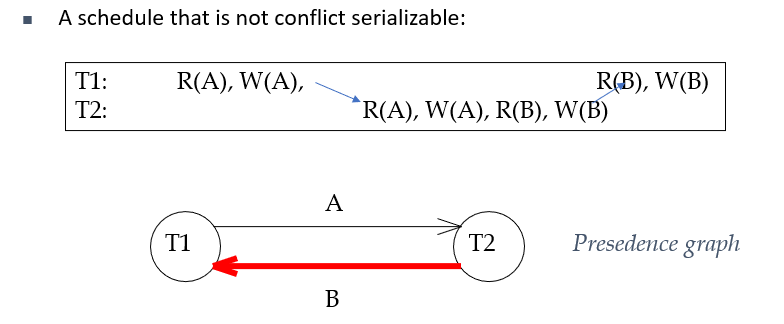
Deadlocks
Cycle of transactions waiting for locks to be released by eachother
Deadlock Detection
Wait-for graph:
Nodes - Transactions
Edges - Edge from Ta to Tb if Ta is waiting for Tb to release lock
If a loop forms, there is a deadlock
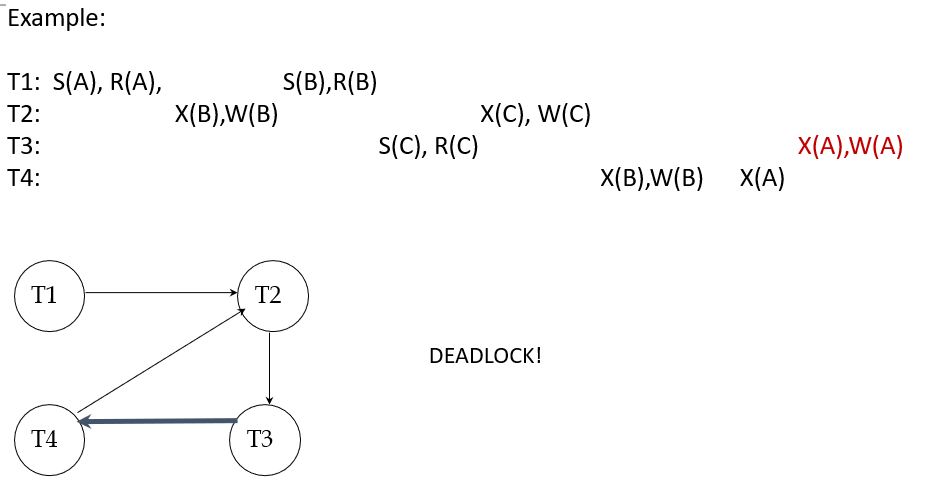
Deadlock Prevention
Assign priorities based on timestamps
Eg: If Ta wants a lock that Tb holds, two policies are possible
Wait-Die: If Ta has higher priority, Ta waits for Tb
Otherwise, Ta aborts
Wound-Wait: If Ta has higher priority, Tb aborts
Otherwise, Ta waits
Recoverable Schedules
Recoverable: no transaction commits until all the data it read has been committed.
Long explanation:
If Transaction T read some data, it can’t commit until the transactions that wrote that data have commited first
The data is recoverable as long as T doesn’t commit before the transactions that wrote that data
If T commits before the transactions that wrote that data, the other transactions data is unrecoverable
Cascading Aborts
If T1 reads an action that T2 has written on, and T2 is aborted, T1 must be aborted as well
